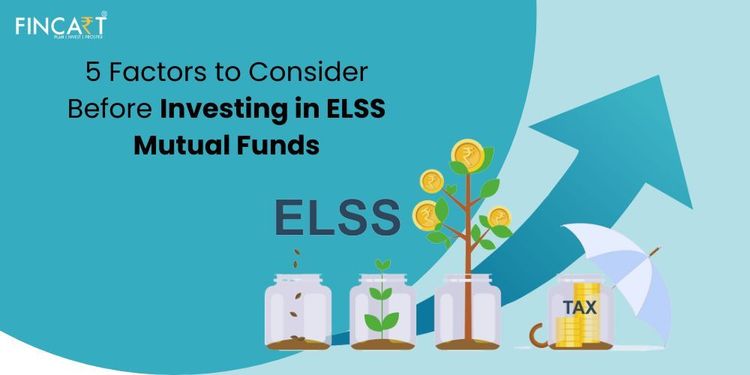Table of Contents
ToggleELSS funds, or Equity Linked Savings Scheme funds, are a popular investment option in India. They are a type of mutual fund that primarily invests in equities, aiming for potential capital appreciation. Investing in ELSS funds is attractive because of their tax-saving benefits under Section 80C of the Indian Income Tax Act, allowing investors to claim tax deductions of up to Rs. 1.5 lakhs per financial year.
With a mandatory lock-in period of three years, ELSS funds encourage a long-term investment approach. By offering the potential for higher returns through equity investments, ELSS mutual funds provide an efficient way to save on taxes while participating in the stock market.
Effective investment planning involves strategic allocation of funds over the long term, aligning with financial goals, and optimizing tax benefits. With ELSS funds, investors can seamlessly integrate their tax-saving objectives into a comprehensive investment planning strategy.
Things to know before investing in ELSS funds
A few things should be checked before investing, just like with any other investment. To maximize your investment potential and make informed decisions before investing in ELSS funds, you need to consider several factors.
Risk and Volatility:
ELSS funds invest primarily in equities, which are subject to market fluctuations and volatility. In addition to offering higher returns, they also carry higher risks. Assess your risk tolerance and match it to the potential ups and downs of the investment.
Investment Horizon:
Due to their mandatory three-year lock-in period, ELSS funds are best suited for long-term investment goals. Ensure you can stay invested for the lock-in period to benefit from potential growth and tax savings.
Also Read: 4 Key Benefits Of Investing In Mutual Funds
Tax Benefits:
Tax deductions are available for ELSS funds under Section 80C of the Indian Income Tax Act, up to a maximum of Rs. 1.5 lakhs per financial year. Don’t let tax-saving potential be your only motivation to invest. Assess the investment’s suitability and alignment with your overall financial plan.
SIP Investment:
A SIP investment is an option available in ELSS funds that allow investors to invest a fixed amount at regular intervals. SIPs help in rupee cost averaging and reduce the impact of market volatility. Consider SIPs if you want to invest in ELSS funds systematically over time.
Fund Performance and Track Record:
Be it a mutual fund investment or ELSS it is crucial to check its past performance and analyze the historical performance of ELSS funds before investing. Look for consistent returns over various market cycles and compare the performance of different funds. Past performance doesn’t guarantee future results, but it can provide valuable insights.
Fund Manager Expertise:
Evaluate the expertise and experience of the fund manager responsible for managing the ELSS fund. A skilled fund manager can make a significant difference in the fund’s performance and navigate market uncertainties.
Diversification:
Diversification is crucial in any investment portfolio to reduce risk. ELSS funds invest in a diversified portfolio of equities, but you should also ensure that your overall investment portfolio is diversified across various asset classes.
Exit Load:
Be aware of the exit load or charges associated with redeeming ELSS fund units before the completion of the three-year lock-in period. Ideally, invest only the amount that you won’t need for the lock-in period.
Regulatory Oversight:
Ensure that the ELSS fund you choose is registered with and regulated by the Securities and Exchange Board of India (SEBI). SEBI regulates mutual funds to protect investors’ interests and ensure transparency.
Financial Goals:
Clearly define your financial goals, whether it’s wealth accumulation, tax saving, retirement planning, or any other objective. Align your investment in ELSS funds with your specific goals to make the most of your investment strategy.
Investment Amount:
Decide on the amount you want to invest in ELSS funds. Remember that while there is a tax-saving benefit under Section 80C, the maximum deduction allowed is Rs. 1.5 lakhs.
Review Periodically:
Periodically review the performance of your ELSS funds and assess whether they continue to align with your financial goals. Consider rebalancing your investment portfolio if required.
Also Read: How To Invest In Mutual Funds?
Conclusion:
In conclusion, ELSS mutual funds offer an attractive option for tax-saving investments with the potential for higher returns through equity exposure. However, like any investment, it’s crucial to conduct thorough research, assess your risk tolerance, and align the investment with your financial goals. Consulting with a qualified mutual fund advisor can provide valuable insights and help you build a well-structured investment plan.




